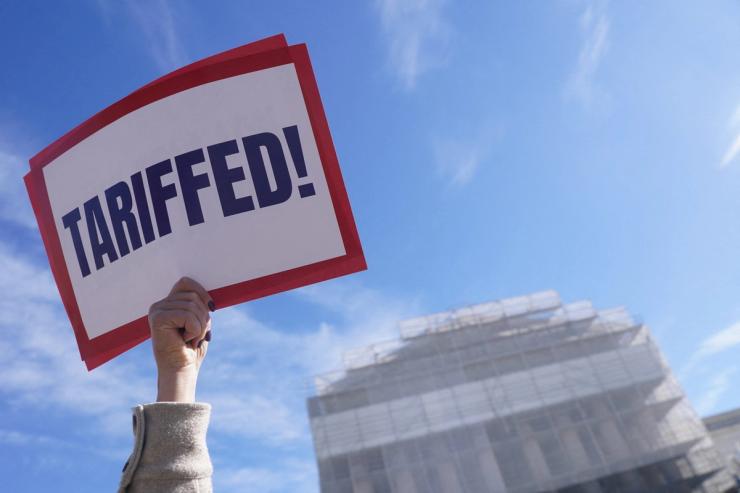what’s at stake
The conservative Supreme Court seemed skeptical this week of President Donald Trump’s sweeping tariffs, threatening a centerpiece of the White House’s economic agenda.
At issue is whether Trump has the power to impose unilateral levies on US trading partners by using the International Emergency Economic Powers Act, or IEEPA, a law that has been used by past presidents to impose penalties like sanctions, but never tariffs — until now.
The Trump administration argued in court this week that the president has the power to impose these tariffs, describing “exploding trade deficits” as well as the trafficking of fentanyl and other opioids as ongoing emergencies.
However, attorneys representing businesses that sued the administration said using IEEPA in that way would require explicit authorization from Congress.
In this article:
who’s making the case
Nazak Nikakhtar, national security chair at law firm Wiley Rein and a former Commerce Department assistant secretary during the first Trump term, argues that Congress did not explicitly authorize tariffs through IEEPA:
“Congress has not resolved the question through explicit statutory language. Legislative history seems to suggest that Congress did not intend IEEPA to permit the imposition of tariffs. On the other hand, the broad definition of the term ‘regulate’ in the IEEPA statute could encompass the imposition of tariffs in times of national security emergencies for foreign policy or economic reasons.”
“The president already has limited authority to impose tariffs pursuant to very specific statutes that require certain factual bases and legal processes. But, if the Supreme Court ultimately holds that the president additionally has broad and unfettered authority to impose tariffs through IEEPA in times of national emergency, as the executive branch contends, that could diminish or conflict with Congress’ tariff authority.
“It’s a tricky issue. If the case is decided on foreign policy grounds, the president could win. If the case is decided on the basis of textual interpretation, the executive branch may have a harder time prevailing.”
Sen. Josh Hawley, R-Mo., a former attorney general of his state, argued that Trump does have the authority to impose unilateral tariffs — under a different statute:
“I actually think he has the authority under the Smoot–Hawley tariffs. … [That law] gives the president pretty broad discretion to set these tariffs on imports. I actually think he’s got statutory authority. I don’t know how the court will rule, because the case is focused on IEEPA exclusively.”
Brian Kelsey, a senior attorney at the America First Policy Institute who helped write a brief to the Supreme Court defending the tariffs, argues that IEEPA gives Trump the authority to impose tariffs (Kelsey is a former Tennessee state senator who received a pardon from Trump earlier this year):
“The law at issue gives the president the power to ‘regulate…importation,’ and tariffs have been the primary tool for doing that since the founding of our nation. The phrase includes tariff powers for two pivotal reasons. First, the law allows the president to flat-out ‘prohibit’ imports. As Justice Amy Coney Barrett noted, surely that includes the lesser power to tariff imports. The ‘major questions’ doctrine, a principle way to interpret statutes, prevents Congress from hiding major powers in insignificant laws. But IEEPA is not insignificant — it grants the president sweeping powers. The phrase ‘regulate…importation’ is surrounded by verbs like ‘nullify, void, prevent, and prohibit,’ so it, too, should be interpreted broadly — to include tariffs.
“Second, a tariff is not identical to a tax, so opponents are incorrect to argue that the absence of the word ‘tax’ in the law is fatal. Tariffs primarily regulate foreign commerce, and any revenue raised is incidental. This distinction also means there is no improper delegation of Congress’ taxing power.
“As the president’s lawyer said, ‘These policies are most effective if no one ever pays the tariff.’ The goal is to drive nations back to the negotiating table to secure fairer market access for American goods. All Americans should hope the Supreme Court preserves this vital tool, so President Trump can keep fighting for American workers.”
Notable
One big question looming over the Supreme Court’s decision is how the federal government would refund the more than $90 billion in tariff revenue it has collected if Trump loses the case, CNN writes.


